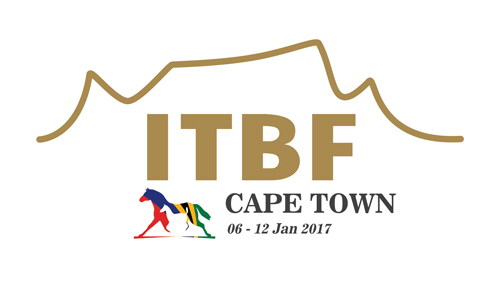The International Thoroughbred Breeders Federation (ITBF) is the representative body for thoroughbred breeders worldwide and provides a platform for member countries to reflect, solve problems, educate and create opportunities for mutual collaboration and assistance. The ITBF acts as a liaison body with racing and allied institutions and authorities, so that the International Thoroughbred Breeding Industry is represented and given space on worldwide forums.
This year, the ITBF congress is being hosted by the TBA at the Table Bay Hotel in Cape Town and will take place from 6-12 January 2017. The ITBF has assembled an incredible list of speakers for this year’s congress and we chatted to Professor Max Rothschild to get a sneak peek of what’s in store.
The field of genome testing and genomics is advancing rapidly for horses, and with it, the available tests and the companies that are springing up around it as service providers. At 2:45pm on Day 1 (Sunday, 8 January 2017), session 2 of the ITBF Professor Rothschild will be discussing the various available options and their efficacy.
Professor Max Rothschild
Professor Rothschild is American who grew up in LA, surrounded by three local racetracks in Hollywood Park, Santa Anita and Del Mar. He’s been going racing since he was a kid and jokes that even as far back as that, he’s never made a cent off horses and while he has an academic interest in genetic mapping and genomics in horses, he has no vested interest or affiliation to any commercial company. What he does have though, is vast experience in the field of gene mapping and genomics in cattle and more particularly in pigs, having designed and developed tools for large-scale commercial producers to select and allow them to purposefully breed for characteristics to accelerate and improve their yields. As matters stand, approximately 90% of all the pork in the USA is produced using tools he and his students have developed.
Professor Rothschild is a CF Curtiss Distinguished Professor in Agriculture and Life Science and holds the ME Ensminger Chair in International Animal Agriculture. Rothschild received his B.S. in animal science at the University of California, Davis in 1974 and his M.S. at the University of Wisconsin in animal science in 1975. In 1978 he obtained his Ph.D. in animal breeding from Cornell University. From 1978 to 1980 he was an assistant professor at the University of Maryland where taught animal breeding and did research into genetics of dairy cattle. In 1980 he joined the Department of Animal Science at the Iowa State University. From 1993 to 2013 Rothschild has served as the USDA Pig Genome Mapping Coordinator and his research dealt with development of genetic tests for improved livestock production.
While the field of genomics and genetic mapping is fairly advanced in the poultry, cattle and swine industries, it has been slower to get off the ground in the equine field, although they are starting to catch up. Along with the development of the science, a number of commercial ventures have grown up alongside it, to provide the technology to the Thoroughbred racing and breeding industries in particular and these developments and their possibilities and limitations are the subjects of Professor Rothschild’s presentation, which will cover an update on “speed” genetics and genomics – test and reliability; ‘Racing performance” studies and Speed Genome-wide Association Studies (GWAS) results in the past two years.
ITBF Presentation
With his strong research experience, albeit from the pig industry, Professor Rothschild is uniquely and independently positioned to review and evaluate the various technologies and products that are currently available and explain their application, benefits, drawbacks and limitations. In layman’s terms, he’s here to discuss what they can and can’t do for you.
Dr Rothschild explains, “We have genomics projects here in the US. I was in charge of the pig genome project and a colleague was in charge of the horse one. Because I’ve been going to the track for a long time, I had an interest, so just kind of listened and kept up with what was going on in the equine project. I was approached about serving on this a genetics advisory board, so I have been trying, in an unbiased way, to determine and describe what tools are available and how these differ – or don’t – from methods breeders have been using for years.”
“I think the biggest negative is that the research and technology is still relatively in its infancy, although there has been a big improvement in the last year and a half that I’ve been examining what the companies have to offer. Perhaps the biggest issue is trying to collect and evaluate the results objectively since what the companies do is not transparent.”
“To give you an example of how it works in practice, In the USA, about 98% of pigs are derived from commercial companies. These companies are each organised around a nucleus herd where the primary animals are selected. Those genetics are multiplied in the multiplication herds. The commercial pig is made by selecting and crossing animals from the multiplication phase. By concentrating the primary genetics in the nucleus herds, one can make all the decisions there, before filtering the primary genetics out.”
“That’s what happens in horse breeding. breeders do select for certain traits and are often successful and the companies claim to offer genetic tests that will improve the odds.”
“In breeding performance horses, the selection criteria may be different and slightly more complex than in animals where you are selecting for a smaller range of criteria, but the science and the application remain the same. Although the primary focus might be performance, aspects that may become of more importance in time to come will be soundness and (of particular interest to the South African audience) disease resistance.”
“I know most breeders are interested in how this can affect their business model, but the focus of my presentation will be to discuss what’s available, the plusses and minuses, to try and take all the hype out of it and put it in real terms so that people have a better understanding of what it is and what it does and make informed choices.”
Professor Rothschild will be presenting at 2:45pm on Day 1 (Sunday, 8 January 2017), session 2 of the ITBF. For more information, please visit their website or click here to register.









